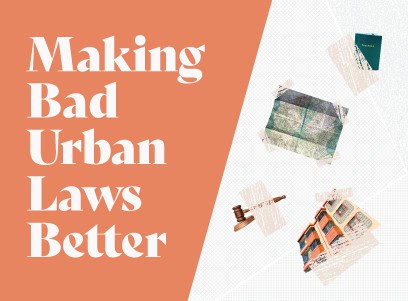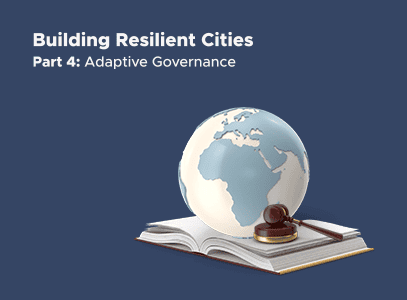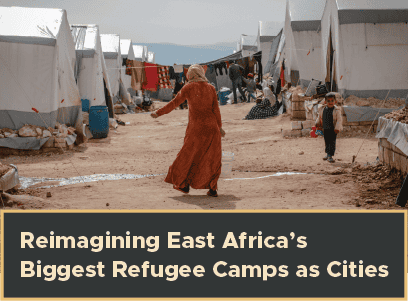Hello,
I hope folks are doing well and staying safe in these uncertain times during covid. I thought I’d give you an update of how covid has affected our plans, how we’re responding, and the broader implications of covid on charter cities.
While it is early, covid is clearly a once in a generation event, arguably the biggest since World War II. As light begins to glimmer at the end of the tunnel, it is important to take stock of what the post-covid era might look like and the implication for charter cities.
First, while work on charter cities has paused, their case remains strong. The world will continue to urbanize, and, if anything, covid has further demonstrated the importance of good institutions. As Hong Kong, Taiwan, and South Korea have shown, effective government can prevent lockdowns with aggressive tracking and tracing. If track and trace is overwhelmed, food distribution in lower income areas become essential to prevent the social unrest that would otherwise accompany a lockdown. A charter city would be better able to both track and trace as well as distribute food if it became necessary.
Two important trends which covid will accelerate are remote work and the withdrawal of the American defense umbrella.
The lockdown is forcing people and companies to work remotely. The acclimation of a generation to remote work will shift norms around requirements to work in the office. The increase in remote workers will open an opportunity for charter cities to compete for workers. Nkwashi, a new city development we’re working with in Zambia, recently launched Explorer Academy, a training program which places graduates in jobs they can do remotely is a prime example.
The second and less certain trend is the transition from American hegemony. Covid has laid bare the lack of American leadership. While American military might remains without peer, it is increasingly unable to police the world and secure global shipping lanes like it once was. Over the coming decade this withdrawal will continue, leading to both cold and warm regional conflicts. The greater uncertainty around conflict and international trade will require export focused charter cities to rethink their supply chains and distribution network.
Lastly, with commodity prices so low, many low-income resource rich countries will be interested in alternative sources of revenue. Charter city developers that can credibly offer future tax revenue in exchange for concessions and land will have many opportunities in the post-covid world.
Like many other businesses and organizations, we’ve had to adjust to the new reality. We canceled the inaugural Charter Cities Conference. Our follow up to the memorandum of understanding with the Zambia Development Agency has been cut short. The submission of the regulations that we helped draft for Enyimba Economic City have been delayed. All the charter city projects we’re in conversations with have been paused.
As a result of the economic pause, we’ve shifted our focus from projects on the ground to content. Before going further in depth on the content, I’d like to welcome our newest colleague, Mo Malabu, who joins us as a legal researcher. He has a JD from the University of Miami and spent the last eight years working in politics and policy in Nigeria. He brings both legal expertise as well as the political realism that comes from on the ground experience.
I am also pleased to announce the Charter Cities Podcast. The first episode has our former colleague, Tamara Winter, interviewing myself. We chat about charter cities, Paul Romer, starting CCI, as well as what Harry and Meghan leaving the monarchy signifies about today’s society. We recorded it during simpler times… We’ll have a new episode out every two weeks. I hope you enjoy!
Jeffrey Mason and I analyze how a charter city might respond to a pandemic in separate blog posts. I argue that “There is precedent for better social technology stopping an epidemic. A Liberian Firestone plantation with 80,000 employees had 0 deaths during the Ebola epidemic due to rapid adoption of effective policies to spread the threat of the disease. Without any public health experts, they were quickly able to adopt best practices for containment from online sources, quarantining a handful of people. The managers realized the threat to the plantation and their profit margins. Their quick actions saved lives.”
Kurtis Lockhart refutes arguments about charter cities as tax breaks. He writes, “critiques of charter cities focused on tax incentives misunderstand the main advantage of charter cities. Charter cities that prioritize deep, long-term regulatory reforms do far more to attract investment and encourage entrepreneurship than ephemeral fiscal incentives. It is these regulatory reforms that lead to long-term economic growth, higher tax revenues, greater state capacity, and the potential to alleviate poverty for millions.”
Kurtis also penned the most read blog post we’ve had in several months, applying Elinor Ostrom’s framework of institutional resilience to charter cities. As we approach the post-covid world, resilience will become increasing important.
Lastly, Jason Crawford interviewed me on progress studies and charter cities. We chat about intrinsic and extrinsic growth, how progress in the 20th century was driven by physics and progress in the 21st century will likely be driven by biology, and of course, charter cities.
We’re using the lockdown to develop a set of reference documents and legal guides for charter cities, including an Introduction to Charter Cities, a Model Charter, Model Legislation, and a Governance Handbook. We expect these to be used by practitioners when the economic engine of the world begins to restart.
Lastly, I’ve started working on a Charter Cities Book. The book will bring together all the strands of discussion, presenting the theory and practice of charter cities with a coherent narrative. I’m currently figuring out the publishing process, so if you have any tips please let me know!
Thank you for reading,
Mark Lutter
Founder and Executive Director, Charter Cities Institute







